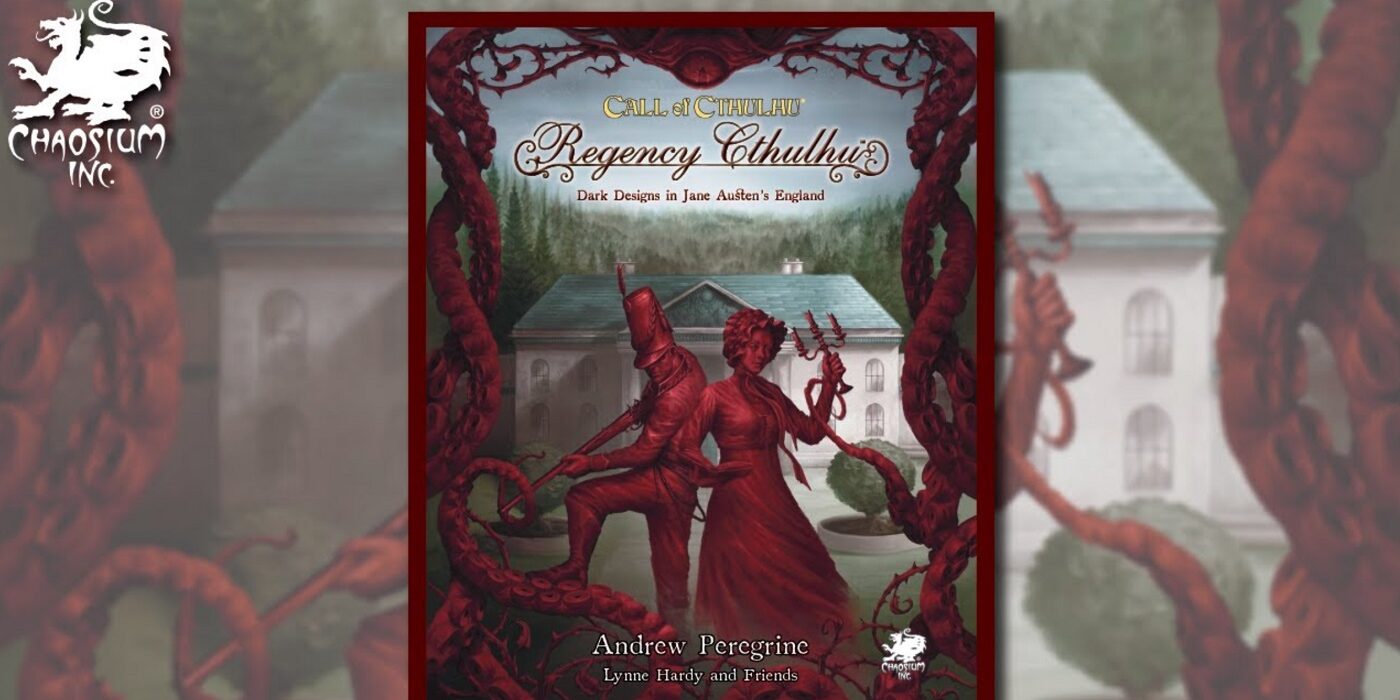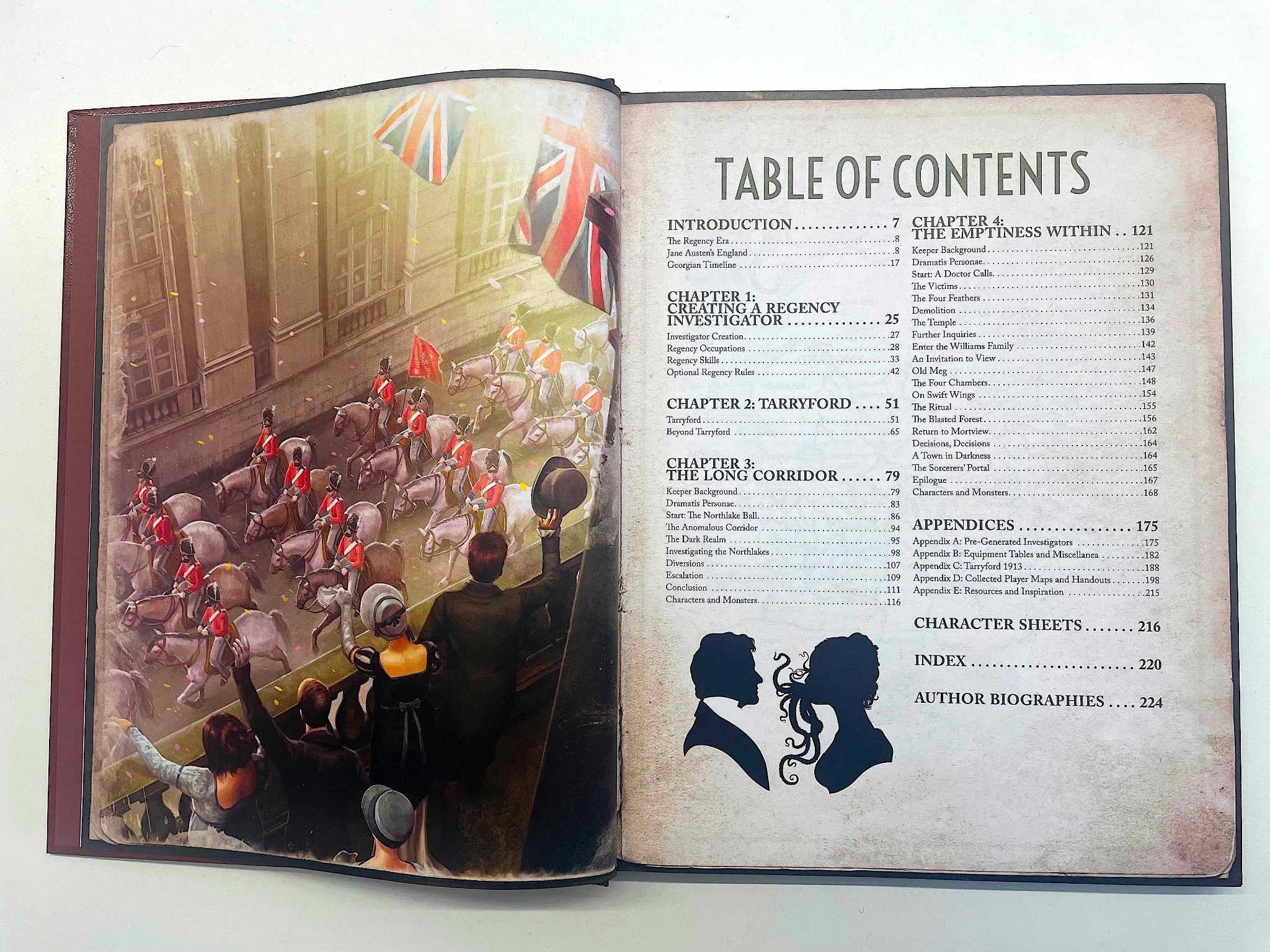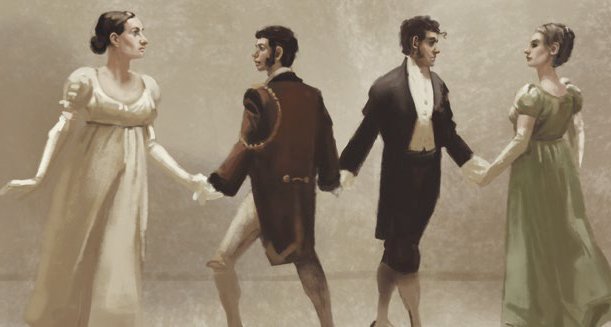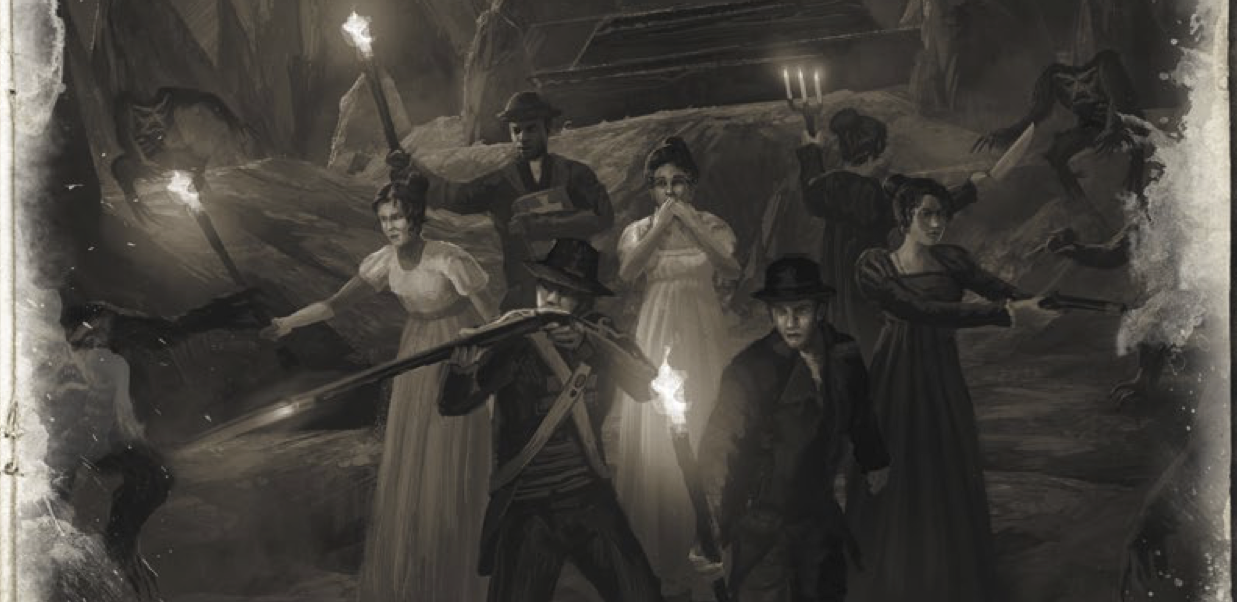RPG: ‘Regency Cthulhu’ Has It All – Pride and Prejudice and Eldritch Horror

It is an eldritch truth, universally acknowledged that with strange aeons, even death may die. Regency Cthulhu, what else do you need?
Regency Cthulhu is a new sourcebook for the popular Call of Cthulhu RPG. And it does exactly what it says on the tin. The world of Regency England—and specifically here, Jane Austen’s England, which was society through a bitingly satiric lens—is about to be full of monsters from the mythos.
Call it Shoggoths and Sensibility. Or Persuasion (by elder powers to hasten the destruction of all you know and hold dear). But maybe buckle a brace of pistols over your waistcoat, because Regency England is beset by horrors.
Regency Cthulhu – $44.99
Regency England: a time of social niceties, grand balls, romantic intrigues, and disappointments—as described in the novels of Jane Austen. Through the lens of the Cthulhu Mythos, horrors weave themselves into the hearts of everyday Georgians—from the richest to the poorest.
So what does “Regency” mean for the Cthulhu mythos? The big new mechanic on display here is a new stat called Reputation. Reputation is a fluctuating statistic, like Sanity or Luck, that gives you an idea of what your standing is among the society set. Your Reputation will help you or hinder you. It is your currency in this world of manners and formality and rules.
You’ll also find rules for running Estates! See if you can impress Lady Catherine de Burgh with your care arrangements. Of course, she might secretly be an agent of the Old Ones. One never knows.
Alongside the new rules, there’s also a new campaign setting, the fictional town of Tarryford. This is as Austen-y as it gets. You’ll find balls and carriage houses, and much more as you peel back the thin veneer of polite society.
You also get two introductory scenarios that introduce the setting and its accompanying mechanics. So whether you want to start a campaign now or for your next coming out ball, you should check out Regency Cthulhu.
Sleep, or repose that deserved the name of sleep, was out of question. That… in which her disturbed imagination had tormented her on her first arrival, was again the scene of agitated spirits and unquiet slumbers.” – Jane Austen








